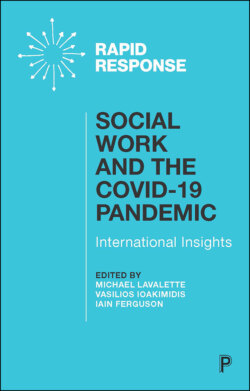Читать книгу Social Work and the COVID-19 Pandemic - Группа авторов - Страница 11
На сайте Литреса книга снята с продажи.
The origins of COVID-19
ОглавлениеIn order to understand the biopolitics of COVID-19 one needs to first appreciate the origins and also explore the diverse epidemiological impact of the disease. As Michael Lavalette noted in the last chapter, COVID-19 is an infectious disease that belongs to the large family of coronaviruses. This group of diseases are known to cause illness in animals and humans. Unlike other coronaviruses, COVID-19 is very dangerous for two main reasons: a) it is highly contagious and therefore more likely to spread widely and reach the most vulnerable people in our communities, causing serious complications and death and b) it is highly likely that even patients that have recovered may still experience long-lasting neurological, respiratory and circulatory complications (WHO 2020).
Although the exact timeframe and location of the disease’s “spill over” to the human species has not yet been determined, there is a broad consensus that COVID-19 originated from wild animals before infecting the first human (patient 0).
At the moment, the most plausible research hypotheses seem to suggest that the natural reservoir for the disease was either a bat colony or a pangolin colony. The genetic makeup of the disease spreading among humans is almost identical to the traces of coronavirus found in both species of wild animals (WHO 2020b). In recent decades there has been a considerable increase in cases of animal viruses jumping species boundaries to infect humans. Outbreaks of deadly viruses such as Ebola, SARS, MERS and Nipah have become more common, claiming thousands of lives globally. Virologists and epidemiologists have been observing this catastrophic trend for a long time. Maarten Kappelle (cited in United Nations Environment Programme 2020) the head of scientific assessments at the United Nations Environment Programme recently confirmed that “People look back to the influenza pandemic of 1918–1919 and think that such disease outbreaks only happen once in a century. But that’s no longer true. If we don’t restore the balance between the natural world and the human one, these outbreaks will become increasingly prevalent.”
